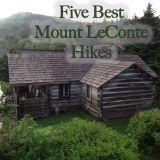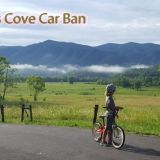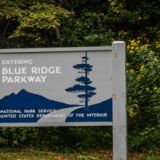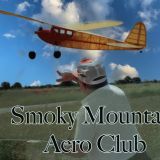The Elkmont Experience in Great Smoky Mountains National Park
…feeling great in ELKMONT!
Elkmont ranger district is one of the most popular areas of the Great Smoky Mountains National Park and boasts a colorful and lively history. Rambling along the western base of Sugarland Mountain, the Little River has created a lush, beautiful, bottom land that has lured folks here for centuries. It’s here in Elkmont where each year in mid-June millions of synchronous fireflies light up the night sky for a couple of spectacular weeks. More information on the Firefly Event can be found below.
Elkmont Campground and Day-Use Rentals
Campground – A large and busy 200-site campground at 2,150 ft. elevation is located on each side of the Little River and is open mid-March through November for tents and RVs. Group camping and wheelchair accessible ADA sites are also available. The campground does not have electric, water, or sewer hook-ups. Potable water is available at spigots near each restroom facility with flush toilets. For more info and reservations, go to recreation.gov.
Camp Store – the campground offers a small outpost that sells firewood, basic dry foodstuffs and camping gear. There are vending machines for cold and hot drinks, snacks, and even ice cream!
The campground itself does not offer any day-use facilities; it is strictly for overnight use only. The nearest picnic area is Metcalf Bottoms Picnic Area, west of Elkmont on Little River Road. Elkmont does offer two recently restored historic structures for day-use rental for groups:
Spence Cabin “River Lodge” – Restored in 2012 to its true-to-original color scheme of pink and green, this 1920’s cabin in the Elkmont Historic District is a unique venue for small groups (40 or less) and offers a beautiful stone patio along the banks of the Little River. Day-use rental reservations can be made at recreation.gov.
Appalachian Clubhouse – Built in 1934, this beautiful 3,000 sq. ft. log clubhouse is located in the southern portion of Elkmont in an historic district referred to as “Daisy Town,” between the mouths of Jakes Creek and Bearwallow Branch. It can accommodate groups of 100 or less. Day-use rental reservations can be made at recreation.gov.
Elkmont Hiking Trails
Elkmont Nature Trail – Just up the road from the campground and ranger station is this self-guided trail that is less than mile long. You’ll find a brochure at the trailhead detailing the natural history.
Little River Trail – About a quarter-mile beyond the nature trail, the road forks. The left fork leads to Little River Trail, a wide and flat route, that is great for families. Little River Trail, which intersects with Cucumber Gap Trail at mile 1.3, follows its namesake for 6.2 miles and ends at backcountry campsite #30.
Jakes Creek Trail – If you follow the right fork in the road you can access Jakes Creek Trail. Jakes Creek Trail and Little River Trail are connected by Cucumber Gap Trail making a 5.1 mile loop that is a favorite for day hikers.
Cucumber Gap Trail – At 2.3 miles in length and connecting Little River Trail and Jakes Creek Trail, this easy trail is great for families. In springtime it offers a beautiful wildflower display.
Fishing in Elkmont
Superb back-country trout fishing can be found the cool waters of Little River, Jakes Creek, and other numerous streams for those who possess a Tennessee fishing license which can be obtained at tn.wildlifelicense.com.
Synchronous Fireflies in Elkmont
The unique Synchronous (one of 19 species in the park) Firefly is the only species that can synchronize their flashing lights. Peak time to view this phenomenon is usually mid-June, but weather conditions greatly effect the exact time. The event has become so popular that the Park Service now limits car access to the campground to registered campers, but others may visit the site via shuttles from the Sugarland Visitor Center. You must obtain a parking pass for Sugarland Visitor Center as shuttle service is available only to the occupants of cars with a parking pass. Passes are free, but a $1.50 reservation fee is required. To obtain parking pass along with reservations visit recreation.gov.
Getting There
From Sugarlands Visitor Center
Approximately 6 miles miles west on Little River Road, turn left at Elkmont Campground sign and travel 1.5 miles to campground office. Public transportation via the Gatlinburg Trolley is available to Elkmont seasonally, for more information, check out the National Park Tan Route.
From Townsend
Approximately 11 miles east on Little River Road.
Elkmont History
It is hard to imagine today as you trek through this dense forest, but just one hundred years ago this area was clearcut by the Little River Lumber Company. Hundreds of men and families lived and labored here in primitive conditions to bring lumber to a growing nation. The land was left “wrecked, ruined, utterly vile and mean,” according to Horace Kephart an early park supporter.
Despite the ecological mess left by the lumber operation the beauty of Elkmont was sought by wealthy Knoxville socialites. Soon the area was a favorite vacation spot. The railroad that once removed millions of board feet of lumber now brought hundreds of visitors to escape the bustle of the city.
In 1910 plots of land were sold to a group of Knoxville sportsmen who established the Appalachian Club for wealthy hunting and fishing enthusiasts. By 1912 others visited the area to stay in the new Wonderland Park Hotel. This facility was purchased in 1929 and transformed into the Wonderland Club, and for the next 20 years both clubs provided an elite venue for wealthy East Tennesseans.
When the National Park was created in the 1930s many cottage owners in Elkmont were given lifetime leases. These were converted to 20-year leases in the 1950s and again in 1972. Leases were denied in 1992 and the park service made plans to raze the remaining structures. Fortunately, in 1994, several cottages, along with the Wonderland Hotel, gained a listing on the National Historic Register opening a 15-year debate over the fate of the historic buildings. Today the restored Spence Cabin and the Appalachian Clubhouse are nostalgic reminders of a bygone era.













